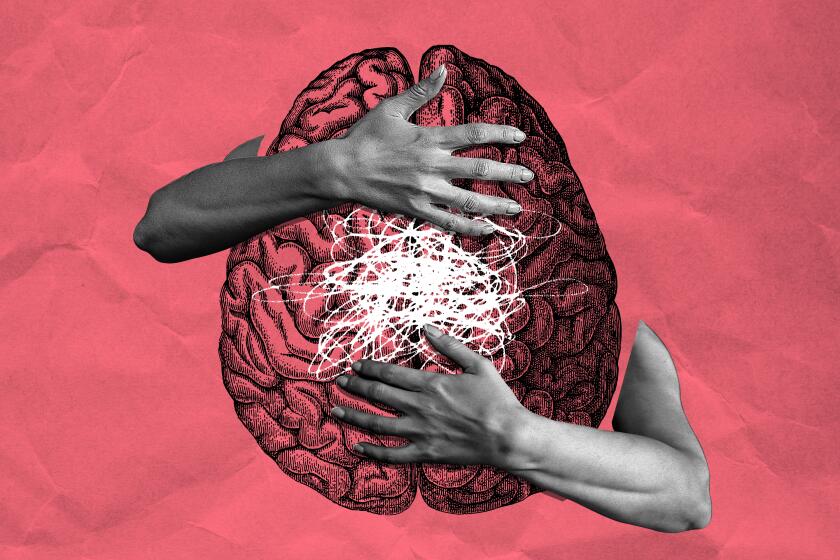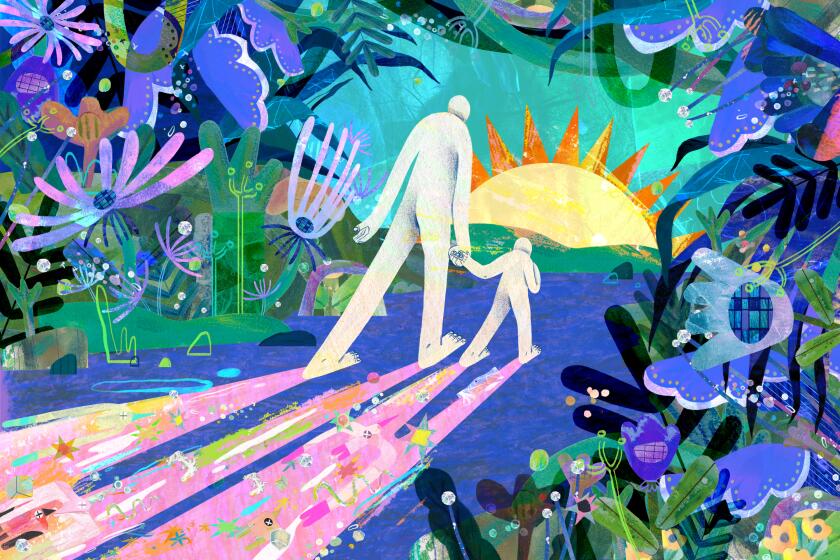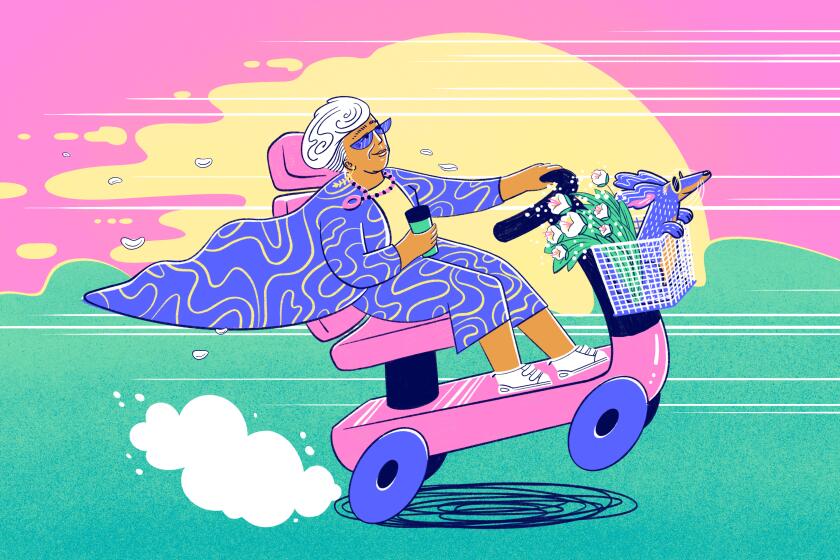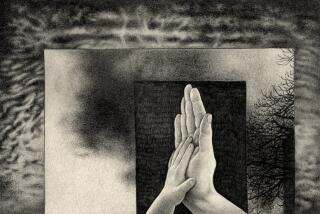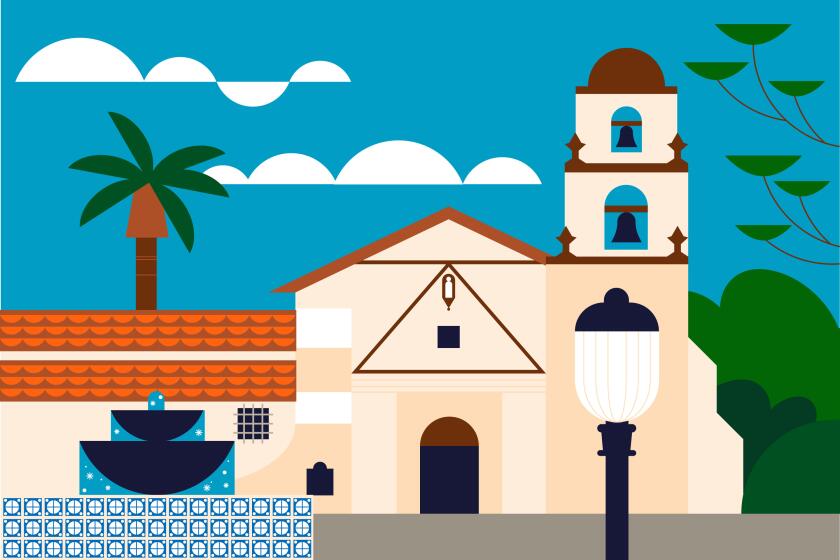
(吉姆·庫克 / 洛杉磯時報;圖片來源:盖蒂图片社)
- A new study, co-authored by Temple University’s Crystal Reeck, sheds light on how we can work through regret.
一項由天普大學的克里斯塔爾·里克(Crystal Reeck)共同撰寫的新研究揭示了我們如何處理後悔。 - The study employs a gambling framework — you win some, you lose some — to help people reenvision negative feelings about a bad decision or outcome.
這項研究採用了一個賭博的框架 - 有得有失 - 來幫助人們重新構想對於一個糟糕決定或結果的負面情緒。 - It also illustrates how you can reframe your memories to alter past regrets and make better choices in the future.
它還說明了您如何重新構築您的記憶,以改變過去的遺憾並在未來做出更好的選擇。
We all have regrets. And they come in myriad shapes and sizes. Some people stew over a minor bad decision, like an unnecessary impulse purchase. Others ruminate over major fork-in-the-road moments, like turning down a potentially exciting career opportunity. For some, regret might be slow-brewing indecision that amounts to loss, like not having children.
我們都有遺憾。它們以各種形狀和大小出現。有些人為一個微不足道的壞決定而苦惱,比如一次不必要的衝動購買。其他人則反覆思考著重要的抉擇時刻,比如拒絕一個可能令人興奮的職業機會。對一些人來說,遺憾可能是一種緩慢醞釀的猶豫,最終導致損失,比如沒有孩子。
But what if you could reimagine your memories — both recent and from long ago — to vanquish feelings of regret?
但如果你能重新想像你的記憶-無論是最近的還是很久以前的-來消除後悔的感覺呢?
That’s the focus of a new study, “Reining in regret: emotion regulation modulates regret in decision making,” co-authored by Temple University’s Crystal Reeck and Kevin LaBar, a professor of psychology and neuroscience at Duke University.
這是由天普大學的 Crystal Reeck 和杜克大學心理學和神經科學教授 Kevin LaBar 合著的一項新研究的重點,名為“控制後悔:情緒調節調節決策中的後悔”。
The study, published in the journal “Cognition and Emotion” in June, employed a gambling framework — you win some, you lose some — to explore participants’ decision-making processes. Sixty people were individually presented with several pairs of bets, each representing different probabilities of winning or losing real money. They were paid $10 for the one hour of questioning as well as bonus money for points they’d racked up during the experiment. If they answered questions incorrectly, they lost real money and may have felt a pang of — you guessed it — regret.
該研究發表在六月份的期刊“認知與情感”中,採用了一個賭博框架 — 有得有失 — 來探索參與者的決策過程。六十人分別被呈現了幾對賭注,每對代表不同的贏錢或輸錢的機率。他們在一小時的問題回答中獲得了 10 美元的報酬,以及在實驗過程中積累的獎金。如果他們回答問題不正確,他們將失去真實的錢,可能會感到一絲 — 你猜對了 — 後悔。
Researchers at UC Berkeley say a daily 20-second ‘micropractice’ can help reduce stress and improve mental health.
Reeck and LaBar were able to gauge the intensity of their regret through questioning and psychophysiological recordings that measured how participants’ bodies were experiencing emotion at the time.
Reeck 和 LaBar 能夠通過提問和測量參與者在當時如何體驗情緒的心理生理記錄來衡量他們的後悔程度。
Participants were encouraged to use two different emotional regulation strategies when faced with uncertainty during the study. The first, which researchers called the “portfolio approach,” encouraged them to recognize that not every decision will work out, and to focus on the big picture in the long run.
參與者在研究中面對不確定性時被鼓勵使用兩種不同的情緒調節策略。研究人員稱之為“投資組合方法”的第一種策略鼓勵他們認識到並非每個決定都會成功,並專注於長遠的整體情況。
“The idea is not to experience as many individual highs and lows but to smooth out your reactions and be more even-keeled,” Reeck said.
“這個想法並不是要體驗許多個別的高低起伏,而是要平滑你的反應,讓自己更穩定。”Reeck 說。
The second strategy was an “all my money on one bet” approach, which focused on each gamble as if it was the only one.
第二種策略是“把所有錢都押在一個賭注上”的方法,專注於每一次賭博,就好像它是唯一的一次。
“What we found was: using the portfolio approach led people to experience less regret and have less strong emotional reactions during the decision-making task,” Reeck said.
“我們發現:使用投資組合方法使人們在決策任務中感到後悔較少,情緒反應也較不強烈,” Reeck 說。
That same approach can be applied to decision making in real life by traveling down memory lane, reviewing past decisions and assigning a different framework to them, Reeck says. The end goal? To make better choices in the present and, ultimately, experience less regret.
同樣的方法可以應用於現實生活中的決策,通過回顧過去的決定並為它們指定不同的框架,Reeck 說。最終目標?在當下做出更好的選擇,最終減少後悔。
“Inevitably, every choice we make doesn’t work out,” Reeck says. “We are all going to experience some losses. But when you try to focus on the gains, it is easier to not be bogged down by past regrets.”
“無可避免地,我們所做的每個選擇都不會成功,” Reeck 說。“我們都會經歷一些損失。但當你試著專注於收穫時,就更容易不被過去的遺憾所困擾。”
Simple strategies for infusing more playfulness, awe and delight into your life.
We spoke with Reeck by phone to learn more about how we can use her findings to get over our regrets — no matter what size they come.
我們通過電話與 Reeck 交談,了解如何利用她的研究結果來克服我們的遺憾 - 無論它們的大小如何。
This interview has been lightly edited for length and clarity.
本次訪談已經經過輕微編輯,以縮短長度並提高清晰度。
Why was regret an especially attractive emotion for you to work with? Were you seeing anything in society or the people around you that drew you to the idea?
為什麼對你來說,後悔是一種特別吸引人的情緒來進行創作?你是否看到社會或周圍的人們有什麼特別的地方吸引你?
Regret is ubiquitous. When a decision doesn’t work out the way we had hoped, and we see that if we did something else things would have been better, we experience regret. And the especially challenging thing about regret is we can experience it even for decisions we’re contemplating but haven’t made. For example, you might consider getting a sports car but then imagine how you would feel if it broke down and needed maintenance. That anticipated feeling of regret could lead you to choose a safer vehicle.
遺憾無處不在。當一個決定不如我們所希望的那樣發揮作用時,我們看到如果我們做了其他事情,情況可能會更好,我們就會感到遺憾。而遺憾的特別具有挑戰性的地方是,我們甚至可以為我們正在考慮但尚未做出的決定感到遺憾。例如,你可能考慮買一輛跑車,但隨後想像如果它故障並需要維修時你會感覺如何。那種預期的遺憾感可能會促使你選擇一輛更安全的車輛。
I worked on this project in my 20s and 30s, a time when friends and family were making a lot of big decisions — getting married, changing jobs, pursuing more education, making their first big purchases. And I noticed that some of the worry around those big choices is that they’ll regret something. Understanding better how regret works and how to overcome regret can help people navigate those big decisions, including when it doesn’t work out. So that was part of the draw.
我在二十多歲和三十多歲時參與了這個項目,那時朋友和家人都在做很多重要的決定——結婚、換工作、追求更高學歷、購買第一個大物品。我注意到,人們在做這些重要選擇時會擔心會後悔。更好地了解後悔的運作方式以及如何克服後悔可以幫助人們應對這些重要決定,即使事情不盡如人意。這就是吸引我的部分原因。
What role does regret play in our lives and what’s at stake when we seek to reshape our feelings around it?
後悔在我們的生活中扮演什麼角色,當我們試圖重新塑造我們對它的感覺時,會有什麼風險?
Regret can help us learn from our mistakes. Especially when there was a better option we could have chosen, those negative feelings of regret can help us choose more wisely in the future. And anticipated regret — like with the sports car — can help us avoid risky decisions. The problem is: sometimes regret can lead us astray, like when we used a good process and made a good choice, it just didn’t work out in your favor this time. Regret can steer you away, when you should actually make that same decision again in the future.
遺憾可以幫助我們從錯誤中學習。特別是當我們本可以選擇更好的選擇時,這些遺憾的負面情緒可以幫助我們未來做出更明智的選擇。而預期的遺憾,就像選擇跑車時一樣,可以幫助我們避免冒險的決定。問題在於:有時候遺憾會讓我們走錯路,就像當我們採用了良好的過程並做出了正確的選擇,但這次卻不如預期。遺憾有時會讓你偏離正確方向,而實際上你未來應該再次做出同樣的決定。
A key example of where this comes up is the stock market. Sometimes, like in recent weeks, the stock market may drop dramatically. You might feel regret that you lost money and pull your investment. But that’s not what you should do if your reasoning for being invested was sound — you’ll just end up missing out when the market recovers.
這種情況的一個關鍵例子是股市。有時候,就像最近幾周一樣,股市可能會急劇下跌。你可能會感到後悔失去了錢,並撤回你的投資。但如果你投資的理由是合理的,這並不是你應該做的事情 - 當市場恢復時,你將錯過機會。
Tell us about the study itself. Why did you employ a gambling framework?
請告訴我們有關這項研究本身的資訊。為什麼您採用了賭博框架?
We needed a way to induce people to feel regret in the lab so we could study it. To do that, we asked them to make decisions between two different options that each had some risk — there were no guaranteed outcomes. At some point, people choose an option that makes less money than the other option would have made, leading them to feel regret.
我們需要一種方法在實驗室中引起人們感到後悔,以便我們可以研究它。為了做到這一點,我們要求他們在兩個不同選項之間做出決定,每個選項都有一定風險 - 沒有保證的結果。在某個時候,人們選擇了一個賺錢比另一個選項少的選擇,使他們感到後悔。
External and internal ageism permeates our society. Here’s how to step away from the young is good, old is bad dichotomy and embrace getting older.
How can we use the gambling framework to reshape our own feelings of regret?
我們如何利用賭博框架來重塑自己對後悔的感覺?
Think about overall how you made the decision. If the logic or approach you used was sound, you can feel more comfortable with the choice. You probably just got unlucky and if you made the same decision 10 times it would have worked out in most of them.
思考整體上你是如何做出決定的。如果你使用的邏輯或方法是合理的,你可以對這個選擇感到更加自在。你可能只是運氣不好,如果你做出相同的決定 10 次,大多數情況下都會成功。
One of the cool things about regret is there is a formula for calculating its influence on decision making. So you can look at things like pursuing the options with the highest value and if regret is interfering with that. We found that for many of our participants, the portfolio approach led them to make better decisions that were less influenced by regret.
對於後悔的一個很酷的事情是,有一個計算其對決策影響的公式。因此,您可以查看追求具有最高價值的選項,以及後悔是否干擾了這一點。我們發現,對於許多參與者來說,投資組合方法使他們做出更好的決策,這些決策受後悔的影響較小。
Here’s a scenario: I’m an adult with a gnawing regret— let’s say it’s not buying the house of my dreams when I could afford it. How do I use your framework to reshape my regret?
這裡有一個情境:我是一個成年人,心中充滿著悔恨 — 比方說當我有能力買下夢想中的房子時沒有這麼做。我該如何使用您的框架來重塑我的悔恨?
Focus on your reasons for not buying the house — were they sound and did they make sense with the information you had at the time? If so, give yourself some grace for the choice you made. And remember that feeling of regret when the next once-in-a-lifetime opportunity comes along.
專注於你不購買這房子的原因 — 它們是否合理,是否與當時你所擁有的資訊相符?如果是,給自己一些寬恕,為你所做的選擇。並記住當下機會來臨時的後悔感。
How can we reimagine our memories to alter past feelings of regret? Walk us through that exercise.
我們如何重新想像我們的記憶,以改變過去的悔恨感?帶領我們進行這個練習。
Think back to where you were when you made the decision. What information did you have at the time? And did you use what you knew well? Was the way you approached the decision reasonable and did you use a good strategy? If so, offer yourself some grace. Remember that you win some, you lose some.
回想一下當時你做決定的地點。當時你有什麼信息?你是否使用了你所知道的東西?你處理決定的方式是否合理,並且你是否使用了一個好策略?如果是的話,給自己一些寬恕。記住,有得必有失。
Think about if the decision you made had actually happened 10 times instead of just 1. Would you get the outcome you wanted most of the time, and you just got unlucky? Keep in mind you just want to do well overall, even if the occasional decision doesn’t work out.
想想看,如果你所做的決定實際上發生了 10 次,而不只是 1 次。你會大部分時間得到你想要的結果嗎,只是你運氣不好嗎?請記住,你只是希望整體表現良好,即使偶爾的決定不成功。
More to Read 更多閱讀
Sign up for The Wild
註冊 The Wild
We’ll help you find the best places to hike, bike and run, as well as the perfect silent spots for meditation and yoga.
我們將幫助您找到最佳的徒步、騎行和跑步地點,以及完美的冥想和瑜伽靜謐之處。
You may occasionally receive promotional content from the Los Angeles Times.
您可能偶爾會收到《洛杉磯時報》的促銷內容。
